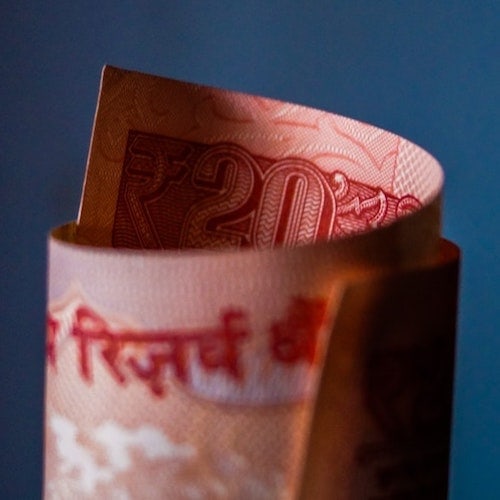This inquiry into the role of “obligatory almsgiving” (zakat) within Muslim humanitarianism presents a theorization of two modes of Islamic charity: the purity ethos and the developmentalist ethos. Relying on ethnographic data from north India and others’ scholarship, I present this theory of zakat as a provocation to western categories of philanthropy, charity, humanitarianism.
Islamic scriptures teach that charity is best given in secret. Mohammad exhorted almsgivers: “Give from your right hand so the left will not know,” a popular saying that was repeated to me numerous times in my one and a half years of field research in Lucknow, India. Yet one steamy midsummer day I found myself sitting among a dozen Muslim almsgivers in an outbuilding of a mosque in a bazaar of the old city neighborhoods of Lucknow, observing alms that were not so secret. These men were donors to an Islamic charity organization, and they watched as wares purchased with their alms – sewing machines, rickshaws, street-vendor carts – were distributed to needy unemployed Muslims.
These gifts of Islamic charity were far from hidden. They were given in public; alms-takers’ names were called, they were photographed along with donors, and the event was written up in the local news and even broadcast on the Internet. This is a far cry from the “left hand not knowing.” Yet scholars of Islamic law and ordinary Muslims alike in India are lauding such new Islamic charities for reviving the ritual of obligatory almsgiving (zakat) to address Muslim poverty, even when they depart from older practices. One reason for the broad support for new modes of Islamic almsgiving is that Islamic charity organizations benefitted from this visibility. This charity grew each year in size, and the increased revenues in turn flowed to increasing numbers of beneficiaries of alms. Muslims as far as the U.S. have donated online, for example in lieu of the traditional Eid al-Adha ritual of sacrifice and charity paying the cost of a goat to feed the poor in Lucknow.
Arriving in north India to study Muslim civil society and charitable practices in 2012, I was caught by surprise at the intensity with which numerous concerned citizens like this new Islamic charity were raising their voices and seeking to revive almsgiving and make it better organized on behalf of the Muslim community. I needed a typology to better understand this mode of organizing zakat and how it represented a historical shift.
This theorization of zakat is useful in understanding new forms of Muslim public ethics in north India, as the ritual of zakat (historically given in modest secrecy) undergoes a transformation to newly public social institutions and more widespread practice.
Zakat, as Islam’s ritual of crowd-sourced fundraising, is fast replacing landed endowments (waqf) as the institutional financing for Muslim charitable institutions. This shift echoes a broader trend in philanthropy towards the “big power of small change” instead of a reliance on elite patrons, although my own study remains sensitive to the specifics of north Indian practices and of Islam’s extensive jurisprudence on zakat.
This article, drawing on fieldwork in an Islamic seminary and five charity organizations, presents a theorization of two modes of zakat. What I term the “purity ethos” and the “developmentalist ethos” of Islamic charity are each deeply rooted in Islamic scripture and apparent in everyday Muslim practice. Islamic scriptures represent almsgiving as a purificatory ritual focused on the donor. Other anthropologists have observed traditional Islamic charity practices that accord with this purity ethos, described alternately as “financial worship” (Benthall 1999) and piety-in-action (Deeb 2006: 168-212), emphasizing charity as a virtue and its centrality to Muslim spirituality. The ritual efficacy of zakat, in this view, is mostly focused on the purification effected upon the donor, as their soul and their wealth are purified. The recipient, by contrast, is largely occluded in this imaginary of alms as “giving to God” (Mittermaier 2014, 2019).
The second mode of zakat is a “developmentalist ethos.” As we saw in the opening vignette of more public zakat, reformers of zakat are invoking different sets of Islamic scriptures and moral concerns that re-orient the focus of zakat-giving away from donors’ purity to make recipients more visible.
These developmentalist Muslims in Lucknow are inquiring about the life of the gift after it is given: Will recipients utilize charity effectively, such as to generate their own income? Or will it foster dependency and begging? Shouldn’t zakat have an impact, rather than be given just anywhere?
In recent decades, Islamic charities have begun to spring up in greater numbers throughout the world. Many new Islamic charities have organizational missions focused on longer-term development goals, not only immediate charitable needs. Unlike the schools, orphanages, and hospitals that Muslim elites in an earlier generation endowed, these new Islamic charities do not provide continuous services themselves as much as targeted financial development for Muslim families. Their view is to develop and empower beneficiaries to become breadwinners themselves.
In my broader work, “new Islamic charities” are those welfare associations financed through public fundraising for zakat and other Islamic religious donations, supplanting the endowment (waqf) organizations that have been popular in India and other Muslim societies since the medieval era. New Islamic charities became platforms for public advocacy to raise other Muslims’ rates of almsgiving, as they revive zakat but also seek to re-invent it as a more public zakat, as we saw in the opening vignette. But the revival and reform of zakat in Lucknow was focused not only on increasing Islamic philanthropy but on channeling it more effectively to the perceived growing crisis of so-called “Muslim backwardness” in India. They also were motivated by factors internal to Islamic tradition. Reformers in the new Islamic charities directly referenced themselves as continuation of the waves of Islamic reformism through India’s history. Some Lucknow Muslims envision zakat not only as an individual obligation upon donors, but also as a “system” (nizam) of welfare economics internally organized for just redistribution according to Islamic principles.
While parallel to other traditions of philanthropy, zakat begs a unique analysis. It is the third ritual pillar obligatory in Muslim practice. Islamic almsgiving is not mere charity. Nor does the “love” or “voluntarism” inherent in western ideas of philanthropy capture its full meaning. Many scholars, both Muslim and non-Muslim, have relied on a translation of zakat as “alms-tax” to reflect this sense of obligation. Islamic jurisprudence on zakat emphasizes it both as a religio-legal obligation and (if institutionalized at scale) an engine for the circulation of wealth in society, a circulation of wealth which produces social order and a just economy.
On the other hand, Muslims in my research in Lucknow also understand that Muslims should give out of feelings of generosity and voluntarily exceed the obligated amount of zakat. Even though obligated, zakat involved high degrees of personal choice. Many Muslim donors spoke of the zakat obligation as a choice they must make – but also a choice they wanted to make, out of gratitude for having wealth while others lived in poverty. In this sense, zakat was a form of voluntarism. A Muslim must decide where, when, and to whom to give (or, frankly, whether to follow Islamic law at all). In short, zakat – like charity – is a virtue, habituated through personal choices and actions, even as it is perceived as done only because it is obligatory. Common Islamic teachings on charity inter-weave these seemingly contradictory imperatives of individual voluntarism and legal obligation (e.g. Nadwi 2000).
Overall, these dueling themes comprise what I call a “paradox of obligated voluntarism.” This paradox of obligated voluntarism is a useful way to understand the distinct nature of the ritual and social institution of zakat.
My work analyzes how the “obligated voluntarism” of zakat aids our understanding of Lucknow Muslims’ efforts to build social solidarity and public ethics from notions of Islamic welfare. As voluntarism similar to other public engagements, service work, philanthropy, or humanitarianism, zakat giving and distribution can have an inherent civil-political dimension.
Gifts always have a dual nature, as Marcel Mauss observed; gift-giving is both self-interested and selfless. Certain dualities of zakat that I discussed are familiar to us, but also raise very different questions than arise in other philanthropy traditions: the duality inherent in the “paradox of obligated voluntarism” and the two modes of the purity ethos and the developmentalist ethos. I present this theory of zakat as a provocation to western categories of philanthropy, charity, humanitarianism. This is a model built up from ethnography in India, so it represents local practices primarily. But I find it useful more as a theory built from zakat, using ethnography on almsgiving in order to unsettle our western categories of service and giving, especially those based on assumptions of secular humanitarianism that ignore its religious genealogies, for example in “Christianity’s missionary project” (Asad 2003: 62; Barnett & Stein 2012). Rather than claiming to abstract what zakat is generally speaking, I offer this as a model for re-examining our assumptions, as a model of zakat that introduces these Indian practices and Islamic notions as a critique for all of us working on “humanitarianism.” This new theorization helps us understand that – in this case – a ritual obligation can bring citizens into the public sphere as voluntarism does, while coloring their public behavior with spiritual discourses previously left private. This entrance into the public sphere has serious economic and political implications.
References
Asad, Talal. 2003. Formations of the Secular: Christianity, Islam, Modernity. Stanford: Stanford University Press.
Barnett, Michael, and Janice Gross Stein. 2012. Sacred Aid: Faith and Humanitarianism. Oxford: Oxford University Press.
Benthall, Jonathan. 1999. “Financial Worship: The Qur’anic Injunction to Almsgiving.” The Journal of the Royal Anthropological Institute 5 (1): 27.
Deeb, Lara. 2006. An Enchanted Modern: Gender and Public Piety in Shi’i Lebanon. Princeton Studies in Muslim Politics. Princeton: Princeton University Press.
Mittermaier, Amira. 2014. “Trading with God: Islam, Calculation, Excess.” In A Companion to the Anthropology of Religion, edited by Janice Patricia Boddy and Michael Lambek, 274–93. West Sussex: Wiley Blackwell.
Mittermaier, Amira. 2019. Giving to God: Islamic Charity in Revolutionary Times. Berkeley: University of California Press.
Nadwi, Abul Hasan Ali. 2000. The Economic Order of Islam. Rae Bareli, UP: Dar-e Arafat.
Featured image by Ishant Mishra (courtesy of Unsplash.com).






I need material concerning the impact of zakah on the reduction of poverty and inequality distribution of income
Great post! Really insightful and valuable information.